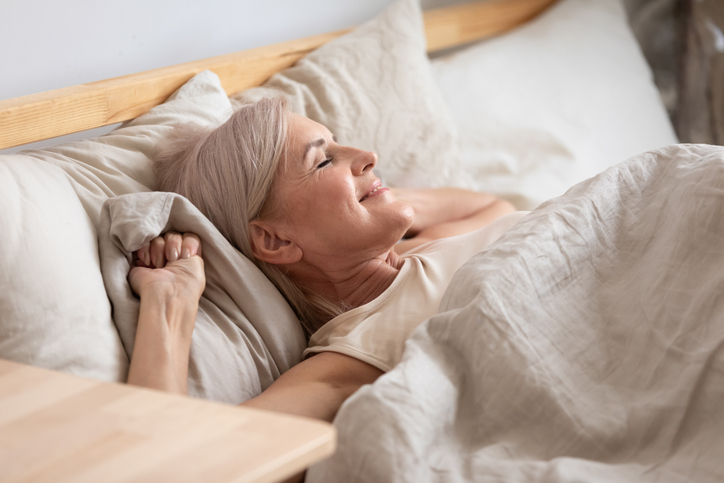
How does menopause effect sleep?
Menopause is a natural biological process that marks the end of a woman’s periods. It can be accompanied by a (wide) range of physical and emotional symptoms, most commonly including hot flashes, night sweats, mood swings and sleep disturbances. Each women’s experience of perimenopause will be unique to them. In this blog post, I’ll discuss the importance of good sleep during menopause and provide some practical tips for sleeping better.
Getting enough sleep is essential for overall health and well-being, but it is especially important during menopause. Lack of sleep can exacerbate the physical and emotional symptoms of menopause, making it more difficult to manage. Poor sleep can also increase the risk of other health problems, such as obesity, diabetes, and cardiovascular disease.
Insomnia is a common sleep disorder that affects many women during perimenopause and post menopause. As hormonal changes and other menopausal symptoms can cause disruptions to sleep, good sleep hygiene practices are particularly important for menopausal women.
What is Sleep Hygiene?
‘Sleep hygiene’ refers to the habits and practices that help us set the scene for a good night’s sleep. The following 6 sleeping tips should make a positive impact on your sleep.
Six practical tips for improving sleep during menopause
1. Stick to a consistent sleep schedule. Going to bed and waking up at the same time every day can help regulate your body’s internal clock and make it easier to fall asleep at night.
2. Create a relaxing sleep environment. Keeping your bedroom cool, quiet, and dark can promote restful sleep. Investing in a comfortable mattress and pillows that support your body can also help.
3. Limit caffeine and alcohol: Caffeine and alcohol can interfere with your sleep and make it harder to fall asleep at night. Limiting your consumption, especially in the hours leading up to bedtime, can help improve sleep quality. I advise no caffeine after midday and limiting alcohol at night time. If you drink alcohol in the evening it will affect your sleep, so try cutting back or stopping altogether whilst you work on your sleep.
4. Exercise regularly. Regular exercise (walking and dancing are my favourites) can help you fall asleep faster and stay asleep longer. Aim for at least 30 minutes of exercise per day, but try to finish your workout a few hours before bedtime to give your body time to wind down.
5. Practice relaxation techniques. Activities like yoga, meditation, or deep breathing exercises can help calm your mind and prepare your body for sleep.
6. Avoid electronics before bed. The blue light emitted by electronics like phones, tablets, and computers can interfere with your body’s natural sleep rhythms. Try to avoid using these devices for at least an hour before bedtime.
If you’re still having trouble sleeping after implementing all these, consider talking to me about cognitive-behavioural therapy for insomnia (CBTI) which is the gold standard approach to insomnia and might help you to sleep better again.
Menopausal insomnia can be managed with the right strategies and support, allowing you to get the restful sleep you need to feel your best. By prioritising good sleep hygiene, you can improve their sleep quality and maintain overall health and well-being during menopause. If you find this isn’t enough, book in for a free 15 minute call with me to discuss your sleep problems or download my FREE guide ‘Sleep Better, Start Today’.
view comments . . .